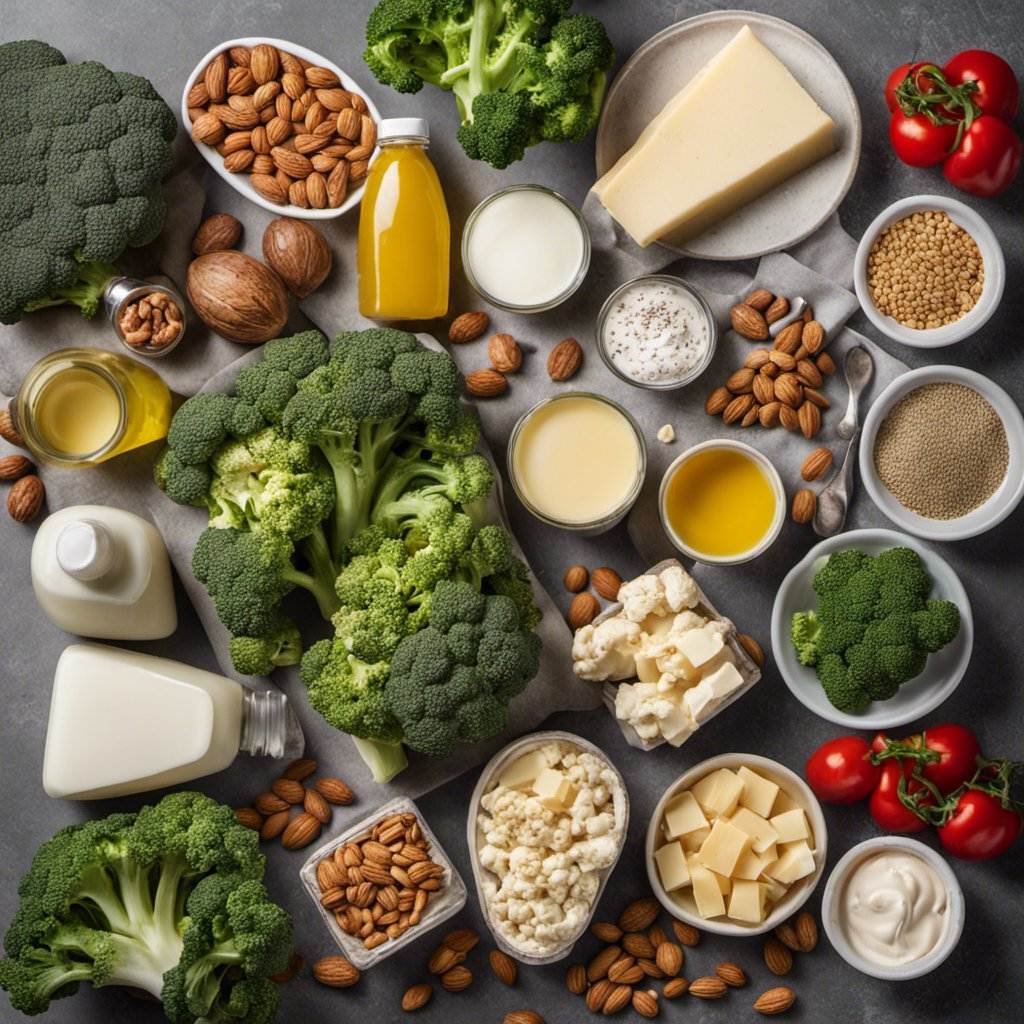The ketogenic diet has evolved from the once-famous Atkins diet of the 90’s. Despite shifts in diet trends, the low-carbohydrate ketogenic approach remains a trusted method for many aiming to lose weight. When done correctly, it’s about shedding pounds and adopting a healthier lifestyle. Here are 5 quick tips for success on the Ketogenic Diet
Key Takeaways
- Proper hydration is essential on the ketogenic diet due to its diuretic effect; monitor your urine color to indicate your hydration level.
- Personalizing carb intake is vital, as everyone’s threshold for ketosis varies; tools like Ketostix can guide adjustments to carbohydrate consumption.
- While the ketogenic diet allows for alcoholic beverages, it’s crucial to opt for unsweetened liquors and low-carb mixers, always keeping moderation in mind.
1. Stay Hydrated: Drink Lots of Water
Ketosis has a diuretic effect on the body, making hydration crucial.
- Why is hydration important? As you restrict carbs, your body releases stored glucose and, with it, water. Thus, increasing water intake becomes crucial to compensate for this loss.
- Daily intake recommendations: Men should aim for a minimum of 3 liters, while women should aim for 2.2 liters. These numbers can increase based on activity levels and individual needs.
- Urine Test: A simple indicator of hydration is urine color. Clear to light yellow signifies good hydration. If it’s darker, increase your water intake.
- Pro Tip: Always carry a reusable water bottle. Not only does it remind you to drink, but it’s also eco-friendly!
2. Embrace Healthy Fats
Ketosis shifts your body’s energy source from carbs to fats.
- Energy Source: Without carbs, our body turns to fat as its primary energy source. This process is the backbone of the ketogenic diet.
- Fat Choices Matter: Not all fats are created equal. Focus on unsaturated fats, which promote heart health. Examples include avocados, olives, nuts, and seeds.
- Avoid Trans Fats: They can increase bad cholesterol and decrease good cholesterol levels, heightening the risk of cardiovascular disease.
3. Personalize Your Carb Intake
Everyone’s body is unique; customize your carb limit.
- Finding Your Limit: Some may achieve ketosis under 20 grams of carbs daily, while others might need more flexibility. It’s essential to find what works best for your body.
- Use Tools: Ketostix and other ketone urinalysis strips can help monitor your ketosis levels, giving you feedback on your carb consumption.
- Listen to Your Body: Noticing your feelings (energy, mood, focus) can indicate whether your carb levels work for you.
4. Choose Your Drinks Wisely
Enjoying alcohol is possible on keto, but choices matter.
- Liquor Options: Stick to unsweetened liquors like vodka, rum, tequila, gin, whiskey, and more. These have minimal to no carbs.
- Mixers: Use low-carb mixers like seltzer, diet sodas, or lime/lemon juice. Avoid sugary beverages.
- Keto Hangovers: Dehydration and electrolyte imbalances in ketosis can intensify hangovers. Combat this by drinking water alongside your alcohol.
- Remember Calories: While carbs are the primary focus, total caloric intake still matters for weight loss. Moderation is key!
5. Trust the Process and Be Patient
Weight loss isn’t linear; there will be ups and downs.
- Scale Fluctuations: Daily weight can vary due to numerous factors like water retention, hormonal changes, etc.
- Beyond the Scale: Gauge your progress using other metrics. How do your clothes fit? How do you feel? Taking body measurements can also show changes that the scale might not reflect.
- Stay Consistent: Even if you don’t see immediate results, consistency with the diet can lead to long-term success.
Conclusion
The ketogenic diet, rooted in science and bolstered by numerous testimonials, offers a structured weight loss and health approach. Its effectiveness is accentuated when individuals tailor the diet to their unique needs, stay informed about their choices, and approach their journey patiently and consistently. The road to a healthier self is a marathon, not a sprint, and understanding the intricacies of the ketogenic diet can ensure a more enriching and sustainable experience.
Frequently Asked Questions
Why is it important to stay hydrated on the ketogenic diet?
As the body enters ketosis, it naturally releases stored glucose and, with it, water. This diuretic effect necessitates increased water intake to prevent dehydration, ensuring bodily functions run smoothly.
Can I eat any fat on the ketogenic diet?
While the ketogenic diet emphasizes fat consumption, it’s vital to prioritize healthy, unsaturated fats like avocados, olives, nuts, and seeds. It’s advisable to limit or avoid unhealthy fats, especially trans fats, which can have detrimental health effects.
Do I need to limit my carb intake to under 20 grams daily?
Not necessarily. While some individuals achieve ketosis under 20 grams of carbs daily, others might find they can comfortably stay in ketosis with a slightly higher carb intake. Personalizing and experimenting are essential to finding what works best for your body.
Is alcohol off-limits on the ketogenic diet?
Not entirely. You can enjoy unsweetened liquors like vodka, rum, and tequila. However, it’s crucial to choose low-carb mixers and consume alcohol in moderation, keeping total caloric intake in mind.

